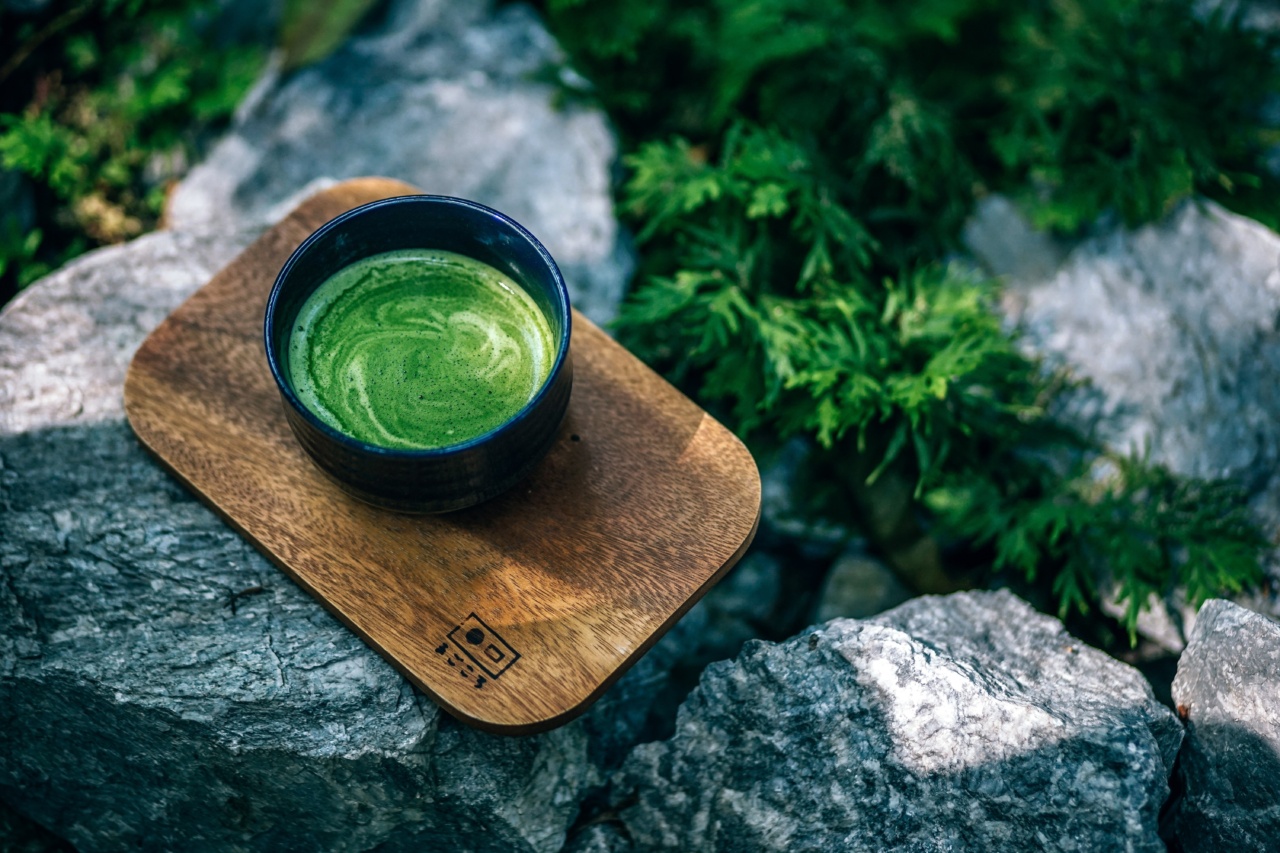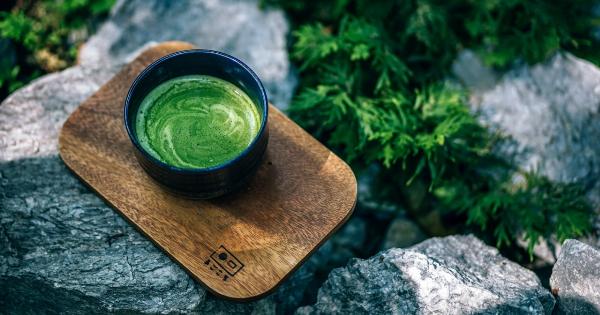Matcha tea has a rich history that dates back centuries. It originated in China during the Tang Dynasty and was later brought to Japan by Buddhist monks in the 12th century.
The monks discovered the unique cultivation and preparation methods that gave matcha tea its distinctive flavor and vibrant green color.
What is Matcha Tea?
Matcha tea is a finely ground powder made from specially grown and processed green tea leaves. The leaves are shaded from sunlight for several weeks before harvest to enhance their chlorophyll content and produce a rich, deep green color.
After harvesting, the leaves are steamed to prevent oxidation and then carefully ground into a fine powder.
The Health Benefits of Matcha Tea
Matcha tea is renowned for its numerous health benefits. One of the key advantages of matcha tea is its high antioxidant content.
Antioxidants are compounds that help protect the body from free radicals, which can cause damage to cells and contribute to various diseases. Matcha tea is particularly rich in a type of antioxidant called catechins, which are known for their potent health-promoting properties.
Moreover, matcha tea contains a unique amino acid called L-theanine, which is known to promote a state of calm and relaxation.
L-theanine also enhances mental clarity and focus, making matcha tea a great alternative to coffee or other caffeinated beverages.
Additionally, matcha tea provides a sustained energy boost due to its combination of caffeine and other natural compounds.
Unlike coffee, which can cause jitters and a subsequent crash, matcha tea provides a gradual release of energy over several hours, without any negative side effects.
Preparing Matcha Tea
Preparing matcha tea is an art form in itself. Traditionally, it is prepared with a bamboo whisk and a ceramic bowl called a chawan.
The process involves sifting the matcha powder into the bowl, adding hot water, and whisking vigorously in a zigzag motion until the tea is frothy and well mixed.
However, modern methods also exist, such as using an electric frother or a matcha shaker bottle. These methods make it easier to achieve a consistent froth and are more convenient for everyday use.
Matcha Tea in Culinary Delights
Matcha tea is not just limited to beverages; it is also a versatile ingredient in various culinary creations.
Chefs and home cooks alike incorporate matcha tea into desserts, pastries, and savory dishes to add a unique flavor profile and vibrant green color.
Some popular matcha-infused treats include matcha latte, matcha ice cream, matcha-flavored cakes, cookies, and even matcha and avocado smoothies.
Matcha can also be used to make savory dishes like matcha-infused pasta or matcha seasoning for soups and sauces.
The Ritual of Matcha Tea
In Japan, matcha tea is more than just a beverage—it is a cultural experience steeped in tradition. The Japanese tea ceremony, known as chanoyu or sado, incorporates the preparation and serving of matcha tea as a ceremonial and meditative practice.
The tea ceremony involves precise movements, attention to detail, and a focus on mindfulness. Guests are served matcha tea and traditional Japanese sweets while they admire the carefully crafted utensils and appreciate the serene atmosphere.
Choosing and Storing Matcha Tea
When choosing matcha tea, it’s important to look for high-quality ceremonial grade matcha. Ceremonial grade matcha is made from the youngest tea leaves and has a vibrant green color and a smooth, mellow flavor.
Culinary grade matcha, on the other hand, is more suitable for cooking and baking.
To ensure the freshness and quality of matcha tea, it should be stored in an airtight container away from light, heat, and moisture. This helps preserve its vibrant color, flavor, and nutritional properties.
Matcha Tea and Weight Management
Matcha tea has gained popularity as a potential aid for weight loss and weight management. Several studies have suggested that matcha tea can increase the body’s calorie-burning rate and help boost metabolism.
Additionally, matcha tea is a low-calorie beverage that can be a healthy replacement for sugary drinks or high-calorie coffee beverages.
It provides a natural energy boost without the added sugars and artificial additives often found in other beverages.
Matcha Tea and Detoxification
Matcha tea has detoxifying properties that can support the body’s natural detoxification processes. The high level of antioxidants in matcha tea helps combat oxidative stress and remove harmful toxins from the body.
Drinking matcha tea regularly can aid in cleansing the body, promoting healthy digestion, and supporting liver function. The chlorophyll in matcha tea is also believed to help remove heavy metals and other toxins from the body.
The Growing Popularity of Matcha Tea
In recent years, matcha tea has gained immense popularity worldwide.
The trend is not just limited to tea enthusiasts but has also made its way into the mainstream market, with matcha-flavored products appearing on store shelves and matcha specialty cafes opening in various cities.
The growing interest in matcha tea can be attributed to its unique flavor, vibrant color, and numerous health benefits.
As people become more health-conscious and seek natural alternatives to traditional beverages, matcha tea has become an appealing choice.
Conclusion
Matcha tea is not only a delightful and flavorful beverage, but it also offers a wide range of health benefits. Its rich history, unique preparation methods, and versatile culinary applications make it a fascinating tea to explore.
Whether enjoyed as a part of a traditional tea ceremony or incorporated into everyday recipes, matcha tea continues to captivate tea lovers and health enthusiasts alike.































